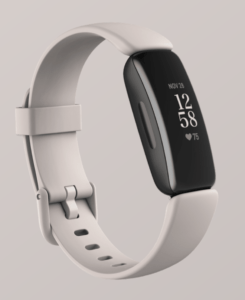A study needs participants to help researchers understand how low blood sugars affect our sleep, moods and our work. Can you take part to help improve knowledge?
A research project called Hypo-METRICS (Hypoglycaemia: MEasurement, ThResholds and ImpaCtS) has been set up to better understand how hypoglycaemia affects people living with insulin treated diabetes. The research team is looking for participants to take part in the project who have either Type 1 diabetes or Type 2 diabetes and who use insulin at least once a day.
The study will involve answering a short series of questions related to how hypoglycaemia may affect you via your smartphone several times a day for 10 weeks. At the same time, the researchers will use a continuous glucose monitor (CGM) and a Fitbit activity monitor that will collect information about your sleep, your activity and your glucose levels for those 10 weeks. Notes: these devices will be supplied to participants; you do not need to have used them before, you only need to have diabetes controlled by insulin therapy.; the CGM data will be ‘blinded’, which means you do not see the data, only the research team.
The results of this study will be used to determine the impact of hypos have on people with diabetes, on their quality of life as well as and the health-economic consequences of hypoglycaemia. At the end of the studies’ 10-weeks, there will be one more part to undertake a year on from that point.
The Chief Investigator is Prof. Pratik Choudhary, while one of the researchers, Dr Patrick Divilly, explains: “The broad aim of this research is to examine how hypoglycaemia can affect different aspects of life, including sleep, mood and work. Over the last few years, there has been increased use of continuous glucose monitors, or CGMs in both real life, clinical and research use – so by people with diabetes, their HCPs and medical researchers. These devices allow us to measure glucose all the time, and so we can collect information on how low glucose levels have gone down to, and for how long.”
This is an observational study (there will be no changes to your diabetes treatment) and you should not expect any direct medical benefit from taking part in this study.
Says Divilly, “By using CGM devices we have found that glucose levels can be low without the person being aware, but we don’t know if these undetected low glucose levels have an impact on their health or daily life. Through this study we want to understand how we should define hypoglycaemia using CGM. We will look at how long glucose needs to be below a certain level before people are likely to recognise it and intervene to treat it. We will also work out how periods of low glucose affect people’s sleep, mood, and work, and whether being able to recognise their hypos makes any difference to this.”
On the level
It is known that different people can pick up symptoms of hypoglycaemia at different glucose levels, and sometimes even the same person can experience symptoms of hypoglycaemia at different levels. By studying a large number of people over 10 weeks, the study aims to be able to define CGM-detected hypoglycaemia that has a clinical impact. “This is important to help people with diabetes optimise their diabetes self-management,” says Divilly, “It will also allow us to compare different treatments for diabetes in terms of their risk for causing hypoglycaemia that has clinical, emotional or social impact. If you use insulin and have had a hypo in the last month, please get in touch. We are particularly interested in those with Type 2 diabetes using insulin. Those who take part will get a voucher and a fitbit as part of the study.”
As this is a piece of research, the research team cannot promise that the study will benefit individuals directly. However, the results of our research and your experiences could help to develop a new definition of hypoglycaemia in CGM use and better understanding of the impact of hypos on people who have diabetes. This information will help HCPs advise you and other people like yourself about diabetes care and in particular the risks of hypos. It may also be very valuable in developing new treatments that reduce the risk of having hypos and help improve access to any newer treatments that may emerge. You can receive the blinded continuous glucose data at the end of the study, if you wish, which you can show to
your medical team who may be able to offer you personal insights and advice.
TO TAKE PART
Email patrick.divilly@nhs.net
For more information on the Hypo-RESOLVE consortium and other research projects visit www.hypo-resolve.eu





